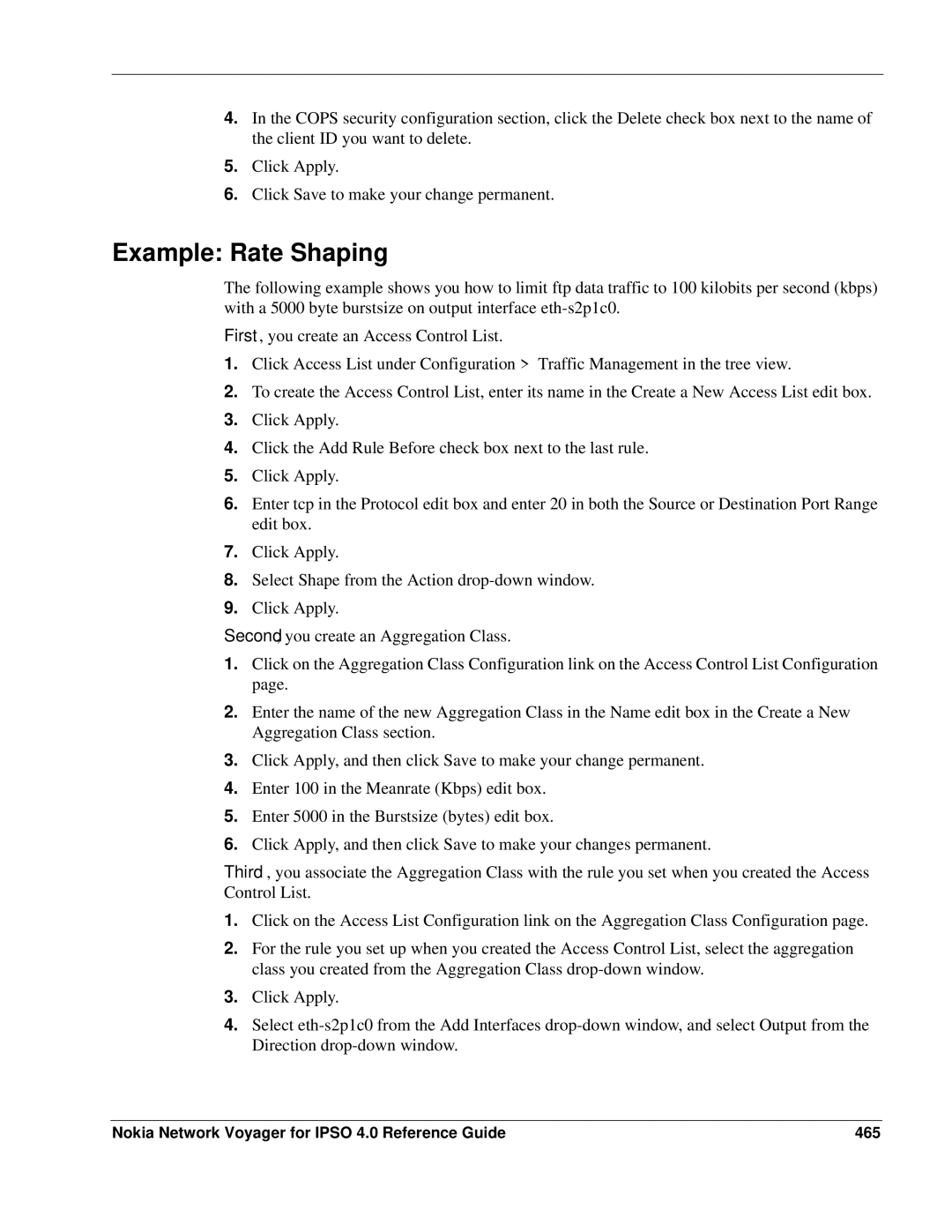
4.In the COPS security configuration section, click the Delete check box next to the name of the client ID you want to delete.
5.Click Apply.
6.Click Save to make your change permanent.
Example: Rate Shaping
The following example shows you how to limit ftp data traffic to 100 kilobits per second (kbps) with a 5000 byte burstsize on output interface
First, you create an Access Control List.
1.Click Access List under Configuration > Traffic Management in the tree view.
2.To create the Access Control List, enter its name in the Create a New Access List edit box.
3.Click Apply.
4.Click the Add Rule Before check box next to the last rule.
5.Click Apply.
6.Enter tcp in the Protocol edit box and enter 20 in both the Source or Destination Port Range edit box.
7.Click Apply.
8.Select Shape from the Action
9.Click Apply.
Second, you create an Aggregation Class.
1.Click on the Aggregation Class Configuration link on the Access Control List Configuration page.
2.Enter the name of the new Aggregation Class in the Name edit box in the Create a New Aggregation Class section.
3.Click Apply, and then click Save to make your change permanent.
4.Enter 100 in the Meanrate (Kbps) edit box.
5.Enter 5000 in the Burstsize (bytes) edit box.
6.Click Apply, and then click Save to make your changes permanent.
Third, you associate the Aggregation Class with the rule you set when you created the Access Control List.
1.Click on the Access List Configuration link on the Aggregation Class Configuration page.
2.For the rule you set up when you created the Access Control List, select the aggregation class you created from the Aggregation Class
3.Click Apply.
4.Select
Nokia Network Voyager for IPSO 4.0 Reference Guide | 465 |
